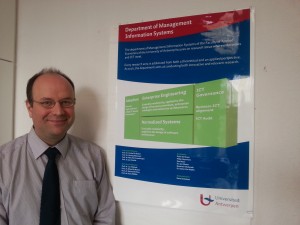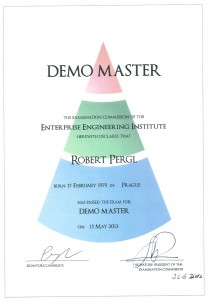CCM invites you to the lecture of prof. Ray Dawson: “Being Right is Not Good Enough – Why Knowledge Management Initiatives Fail”
Time: Thursday Aug 7 2014, 10:00
Place: A-951
Synopsis:
Knowledge Management is of growing interest in business and industry today, and many organisations are looking to use knowledge management techniques. However, most knowledge management initiatives fail to measure up to expectations and many fail altogether. What is going wrong? Is this just a passing fad or can knowledge management be used to make worthwhile improvements to an organisation’s way of working?
In this lecture Professor Ray Dawson first examines what knowledge is and what makes the management of knowledge difficult. He concludes that organisations are right to want to embrace knowledge management, but being right is not good enough to ensure the success of any knowledge management initiative.
There are many examples of knowledge management systems that have floundered or failed and some that have been successful. Is it not possible, therefore, to use this knowledge to learn from these experiences to improve the success rate? Professor Dawson describes a number of case studies of knowledge management initiatives and from these he derives a 12 step plan for successful knowledge management implementation.
About the lecturer:
Ray Dawson is Professor of Knowledge Management at Loughborough University, UK. He obtained a bachelor’s and a masters degree from Nottingham University before entering industry with Plessey Telecommunications in 1977. At the company he developed an interest in software engineering processes and the working methods for information systems development as practiced in industry. Since 1987 he has continued this interest in industrial working methods at Loughborough University, working with companies to improve their software engineering processes and their information and knowledge management systems. A particular interest is Knowledge Management systems implantation as these systems seem to have a particularly poor success record and case studies in this area have revealed some interesting lessons for future system developments.




